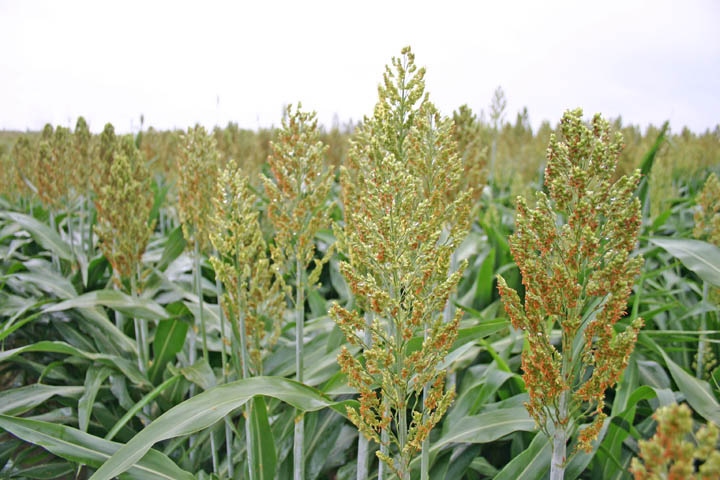November 22, 2010

1. Improved weed control
2. Cold and drought tolerance
3. Insect resistance
4. Improved sweet sorghums for ethanol
5. Promoting sorghum's significant advantages for feed and food uses.
Those are just some of the items at the top of the list sorghum producers hope to achieve from funds generated through a sorghum check-off that is scheduled for a vote between Feb. 1 through Feb. 28 of next year.
Producers across the country will have an opportunity to continue those efforts when they vote to decide the fate of the Sorghum Checkoff Program.
Procedures for that referendum were recently finalized by the U.S. Department of Agriculture and published in the Federal Register Nov. 18. The referendum will be conducted at local Farm Service Agency offices. Those eligible to participate include any person engaged in the production or importation of sorghum from July 1, 2008, to Dec. 31, 2010. Individuals are required to provide documentation such as a sales receipt or remittance form that shows they have paid assessments.
Sorghum Checkoff is intended to be a national, coordinated, self-help marketing program designed to strengthen the position of sorghum in the marketplace, maintain and expand existing domestic and foreign markets and uses for sorghum, and develop new markets and uses for sorghum.
Industry benefits
The funds will help the entire industry, according to producers.
“Checkoff funds will give the industry resources to conduct needed research in sorghum development,” says J.B. Stewart, who farms in the Western Oklahoma Panhandle. “Seed companies currently are more interested in corn, so we don’t have a lot of money for grain sorghum. Checkoff funds will help the sorghum industry become more self sufficient.”
“Checkoff funds will help university and independent companies conduct more research,” says Arkansas farmer Malcolm Haigwood. He says better varieties and production techniques will allow producers to increase acreage and help seed companies sell more seed.
“The checkoff provides a long term benefit to the entire sorghum industry,” he says.
Stewart says sorghum producers need better weed control options. “We need better over-the-top grass control and I’d like to see a good bit of the checkoff money go to that.”
Haigwood says drought tolerance is also a big issue. “Grain sorghum is already a drought tolerant crop, but we need a bit more.”
He also wants to see research into insect resistance and better herbicides.
No GMO
“I don’t expect to see Roundup Ready sorghum and I would be opposed to developing genetically modified sorghum. We already have enough resistance issues.”
Stewart says cold tolerance also makes sense for some growers. “With more cold tolerant varieties we could plant a little earlier in some locations,” he says.
Developing better adapted sweet sorghum varieties also holds promise for producers. “We have a pretty strong focus on sweet sorghum research,” he says. “Bio-ethanol from sweet sorghum has a lot of promise and could be more productive if we can increase biomass.”
Haigwood says checkoff funds also help promote the advantages and new uses for sorghum.
“We can use funds for research, producer education and promotion,” he says. “We can use these funds for just about anything but lobbying.”
He says high protein, low fat and gluten free traits make sorghum a more valuable commodity than many consumers realize. He says sorghum ethanol production is “about equal to corn. We just need to spread the word. We can use checkoff funds to help with that.”
Both Haigwood and Stewart say their 2010 crops were very good. “It was one of the best if not the best crop we’ve ever made,” Stewart says.
Haigwood says he made a good crop and the price was also attractive.
They hope research into better varieties, along with promotions touting the advantages of sorghum, will help them maintain productive yields and continue to boost demand and price.
You May Also Like




